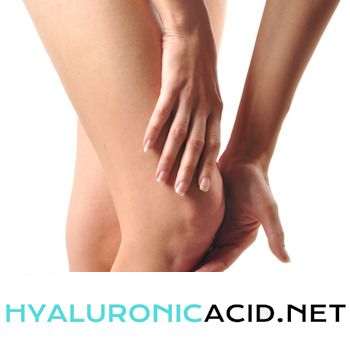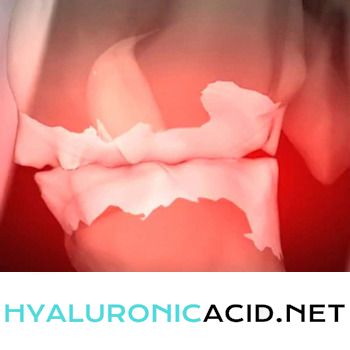Since its inception, Hyaluronic acid has been praised for the benefits it provides for our skin. Be its dryness, dullness or aging, Hyaluronic acid is a one-stop solution for most of the skin problems faced by individuals today. However, as much as one might like to think that you know all about this wonder liquid, there still is one benefit of Hyaluronic acid that not many of us are aware of i.e. its ability to provide relief from Osteoarthritis!

If we consider our body to be a machine, our joints serve the function of gears. Therefore, they tend to work best when they are well lubricated. In biological terms, a thick substance called Synovial fluid provides the necessary lubrication in a healthy joint, thus allowing bones to glide against one another instead of colliding painfully smoothly. So basically, this Synovial fluid acts as a shock absorber, preventing the bones from bearing the full force of impact when you walk, which is vital to facilitate the smooth movement of limbs in the body.
Our body makes Synovial fluid. However, in people suffering from osteoarthritis, this critical Synovial fluid which is also known as Hyaluronic acid becomes less dense by virtue of breaking down. It is this loss of Hyaluronic acid which eventually ends up contributing to problems like stiffness and joint pain.
Now, the question that arises is this - Would replace the amount of lost Hyaluronic acid in the joints help to relieve the symptoms of osteoarthritis? Hyaluronic acid injections, which are popularly known as ‘viscosupplements,' have known to be used for treating osteoarthritis of the knee in particular. Regardless of the fact that, certain studies have claimed that hyaluronic acid injections occasionally yield disappointing results, and a number of doctors who treat osteoarthritis say that that a shot of Hyaluronic Acid in the knee can produce significant relief for several patients.
People who are suffering from arthritis often get shots of Hyaluronic Acid to help lubricate their joints so that they work smoothly without causing any discomfort.
Your doctor would be the best judge to decide if you are a good candidate for Hyaluronic Acid injections, based on your symptoms and other treatments you’ve tried in the past. Even though these shots have been around for more than a decade, studies conducted on the effectiveness of Hyaluronic Acid for Osteoarthritis have shown mixed results. This implies that the efficiency of Hyaluronic acid injections for joint pain cannot be guaranteed, but many doctors usually give them to those Osteoarthritis patients whose condition does not get better with painkillers or treatments such as ice or heat.

The procedure is relatively simple. Your doctor will inject hyaluronic acid directly into the affected area around your knee joint. The dosage of these Hyaluronic Acid shots is usually 3 to 5, meaning that most people get a shot every week for 3 to 5 weeks. Even though the FDA has only approved this treatment for people suffering from osteoarthritis of the knee, some people get it as a precautionary measure in other joints as well.
The research regarding the success of Hyaluronic acid for osteoarthritis has shown mixed results so far, so there is a good chance that Hyaluronic acid joint injections might not work for everyone. It seems to work better for some patients than for others, for example, if you are older or suffer from advanced osteoarthritis, it is quite possible that this treatment might not be that helpful to relieve the joint pain.
Also, it is important to realize that Hyaluronic acid is no quick fix for osteoarthritis or any other joint related issues. According to research, it takes about five weeks on average, before a patient can experience the full benefits of Hyaluronic acid. On the other hand, corticosteroid injections which are the other primary treatment alternative, provide significant relief within a period of few days. However, the advantage that Hyaluronic acid has over corticosteroids is that pain relief from corticosteroids diminishes significantly within a month or so while the pain-relieving benefits of hyaluronic acid persist at peak levels for a period of at least three months, on an average. Sometimes, doctors give patients a double shot in the knee i.e. one injection each of Hyaluronic acid and corticosteroids in order to achieve a quick-acting and long-lasting relief.
Mostly, Hyaluronic injections are tried by people who are unable to take painkillers such as ibuprofen, acetaminophen, or naproxen sodium. Also, sometimes the patients who cannot have, or are not willing to undergo total knee replacement surgery, often resort to Hyaluronic acid injections for osteoarthritis.
Some of the well-known brands of Hyaluronic acid which are approved for knee osteoarthritis are- Hyalgan, Euflexxa, Monovis, Orthovisc, Supartz, Synvisc, Synvisc-One. Depending on which brand your doctor uses, you may either get a single shot or probably get three to five injections spaced over a week.
The procedure for giving the injection is the same for all types.
• First, the doctor cleans the area.
• In case your knee is swollen due to excess fluid, your doctor may inject a local painkiller, flowing which he will insert a needle into the joint to withdraw that excess fluid. With the same needle, the doctors normally inject the hyaluronic acid serum in the knee joint.
• After an injection, it is usually advised not to do any sort of heavy weight-bearing activities for at least one or two days. After a usual recovery period of one to two days, you should be able to resume normal activities.
Usually, people only try Hyaluronic Acid when other treatments such as exercise, physical therapy, injections with painkillers and steroids don’t provide enough relief.
One advantage of choosing the Hyaluronic acid alternative for treating osteoarthritis is that the side effects such as swelling in the affected area and discomfort on the area of your skin where you get the injection, are relatively quite mild. Since the risks are minimal, your doctor may advise you to give Hyaluronic a try, especially if your only other option is knee replacement surgery.